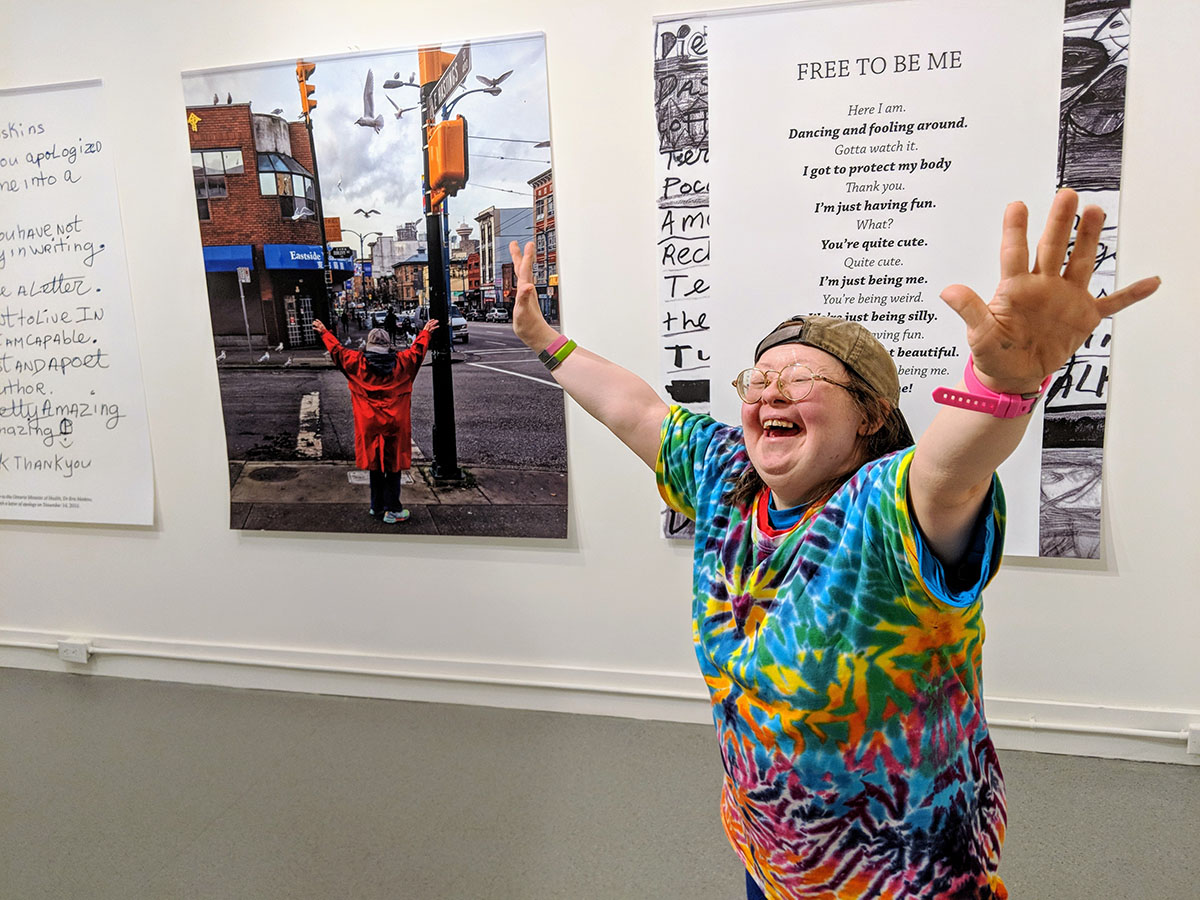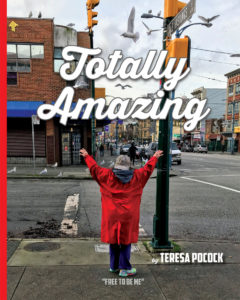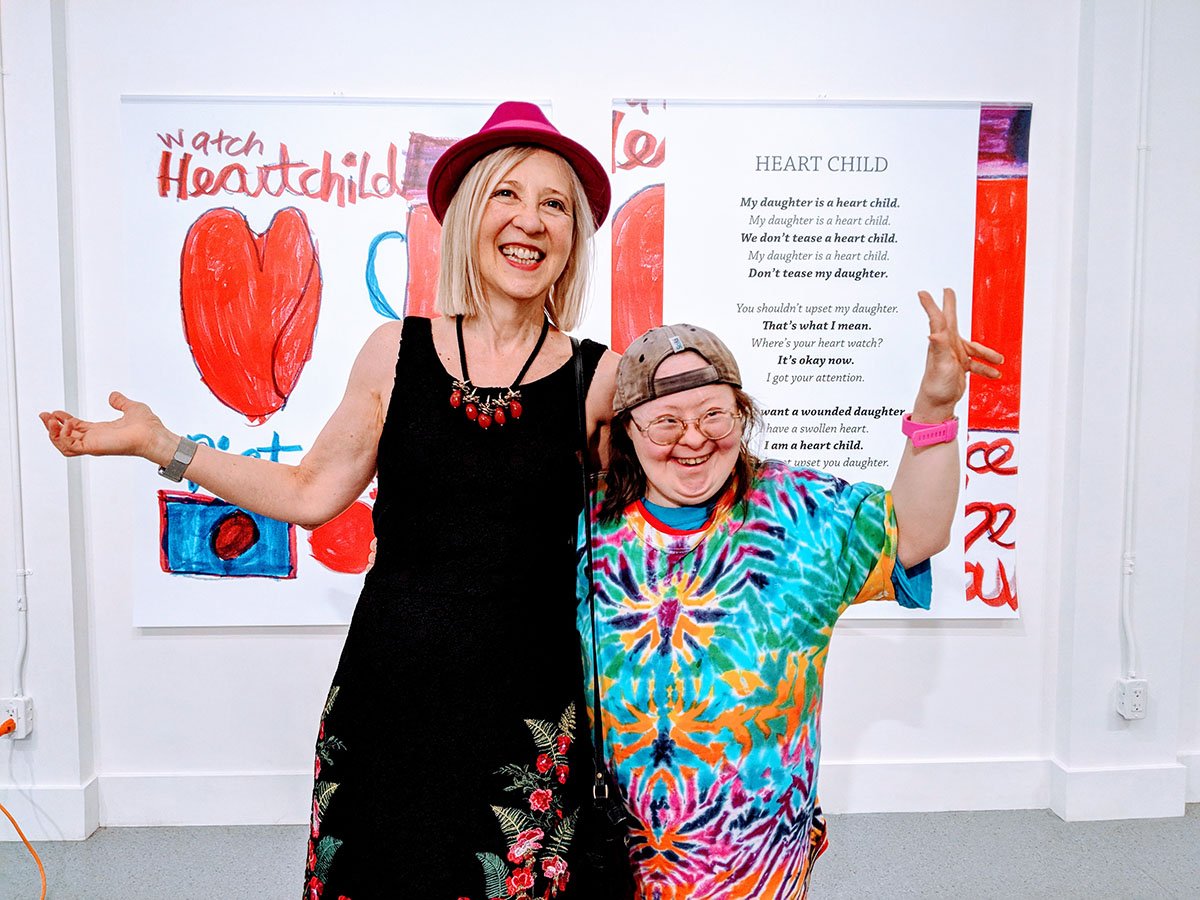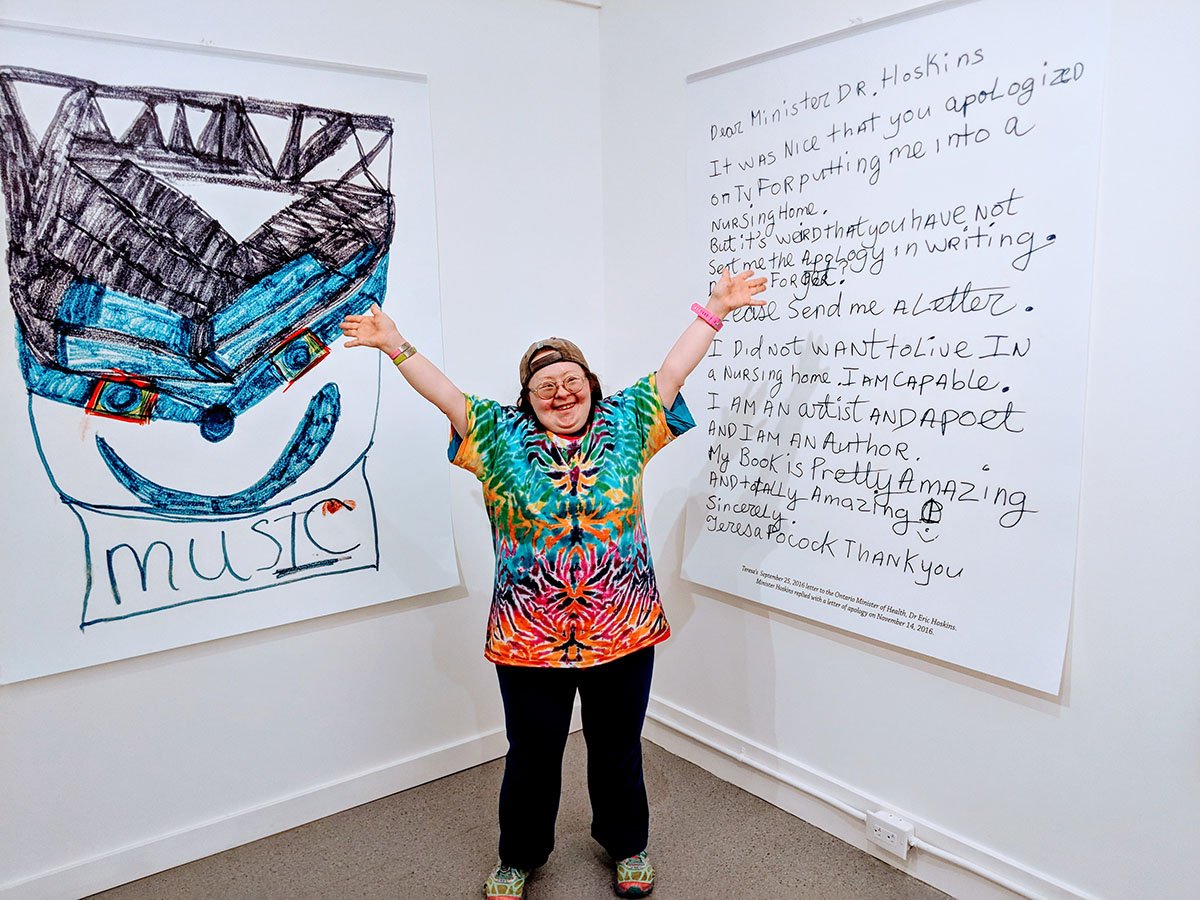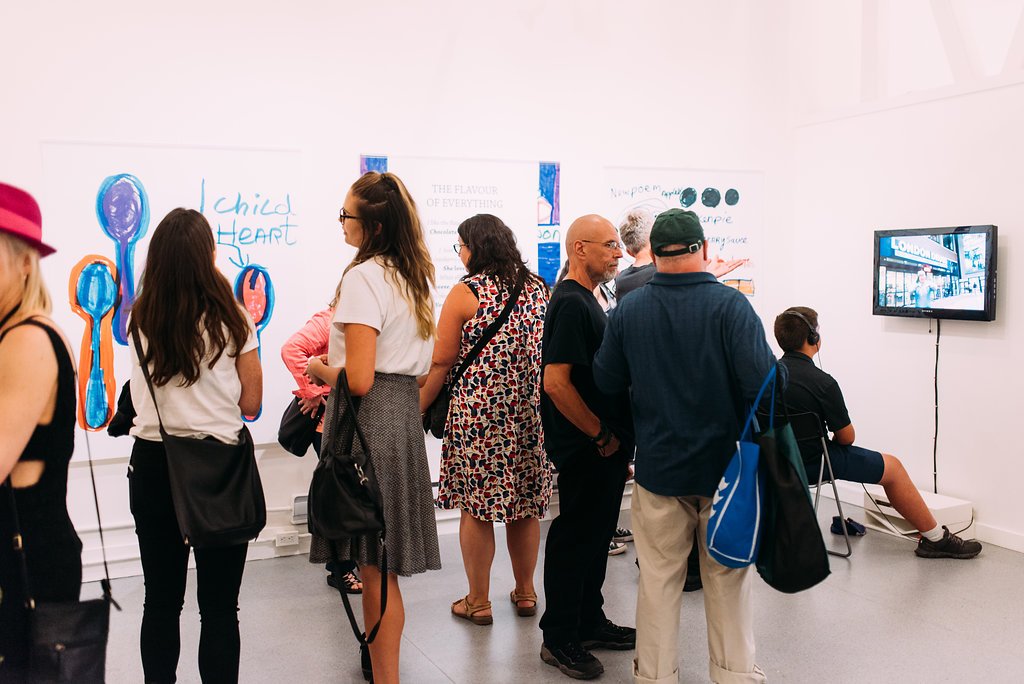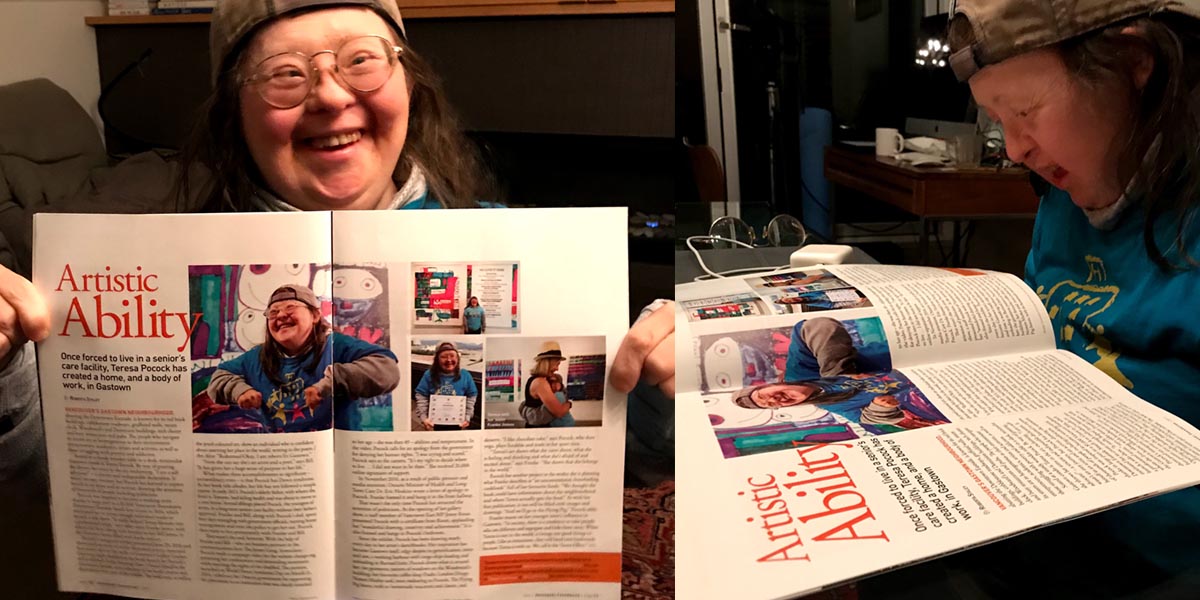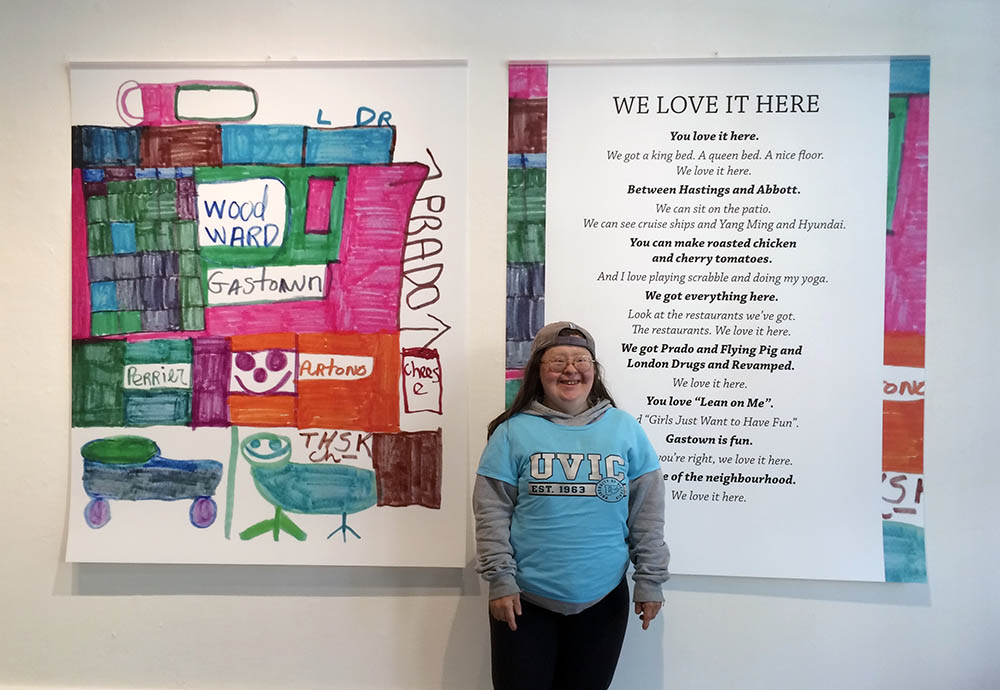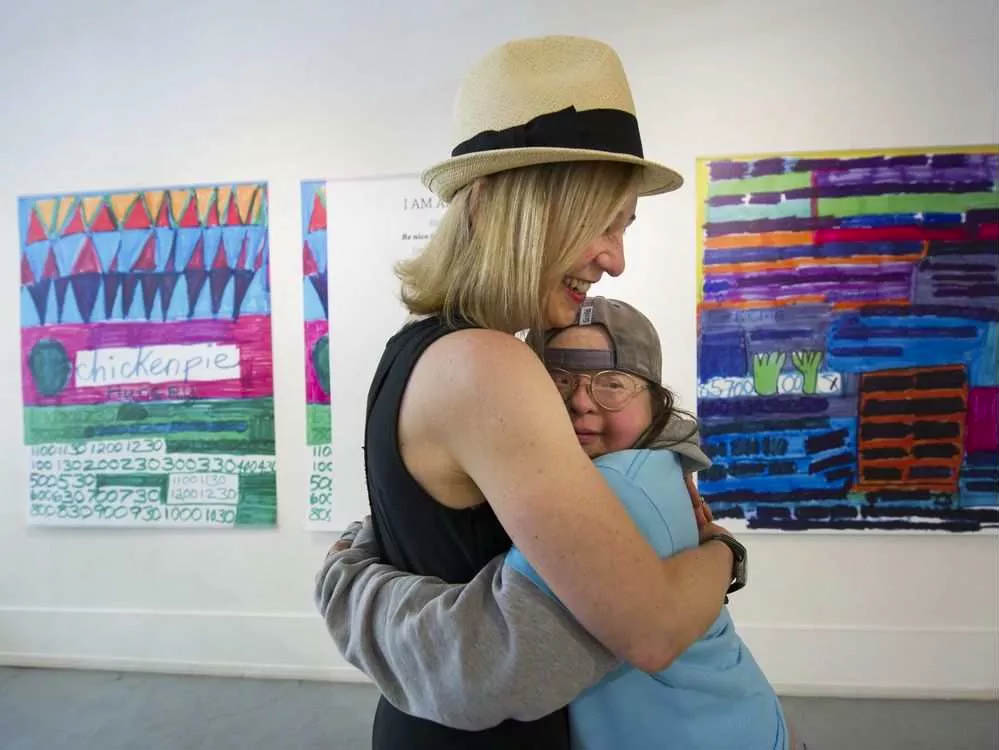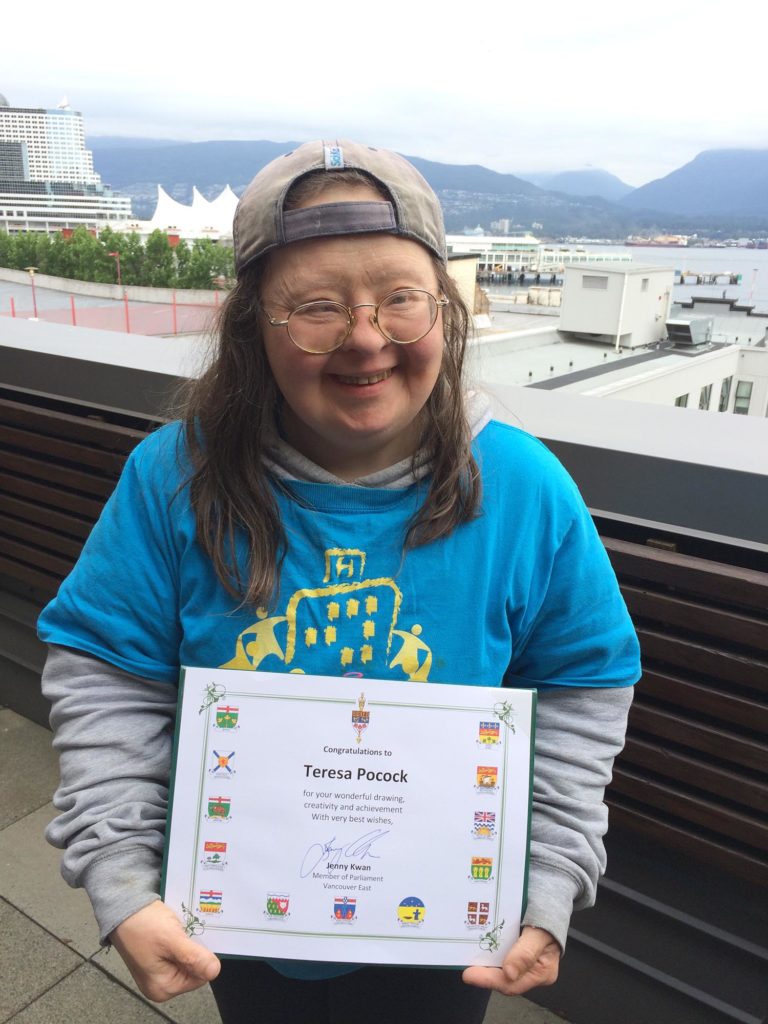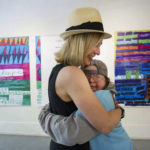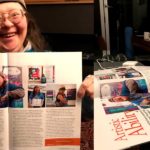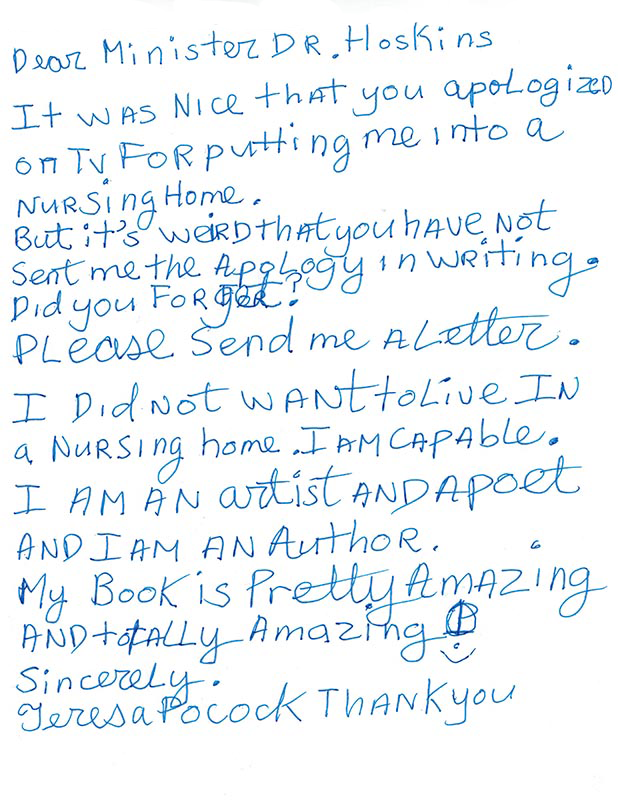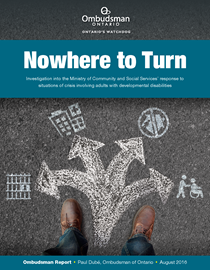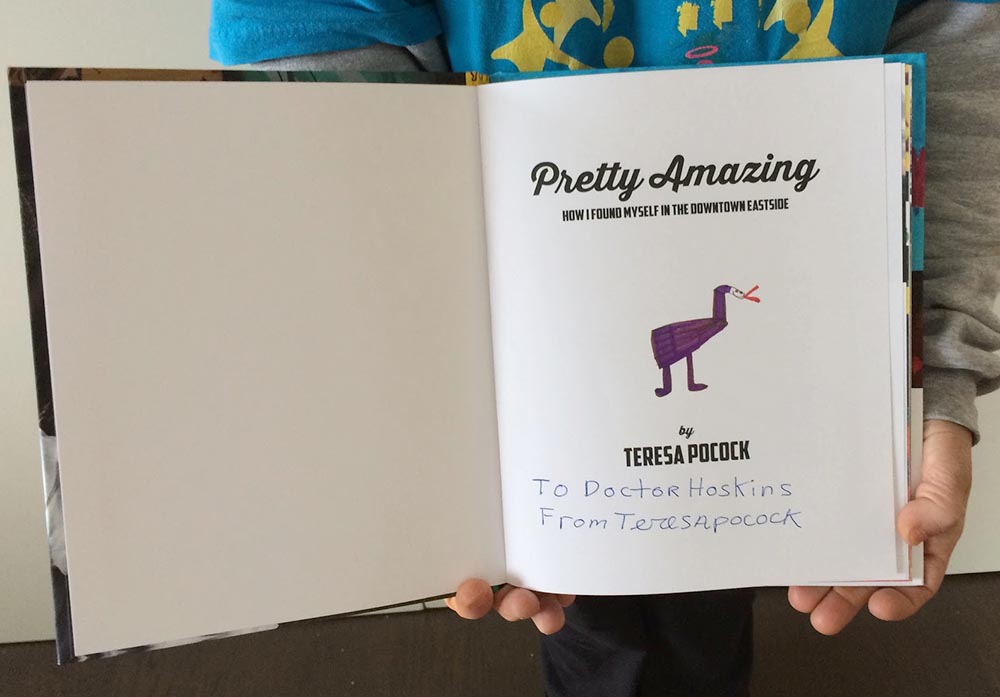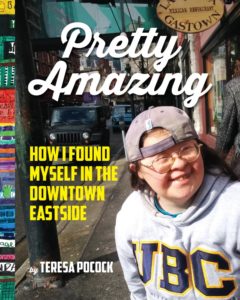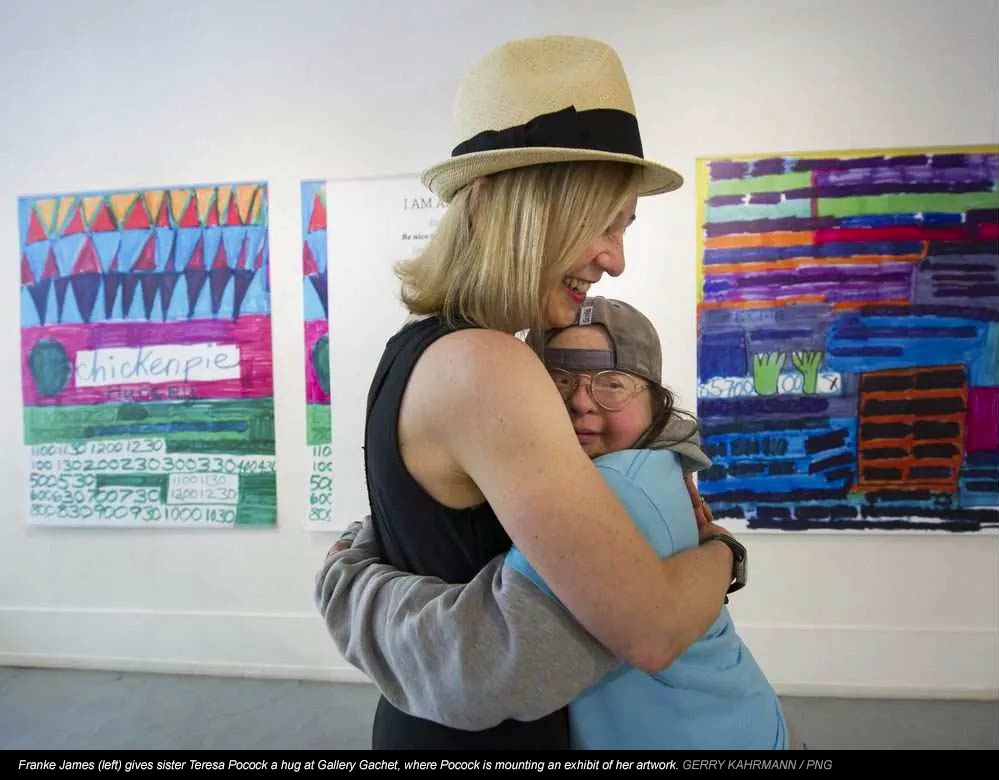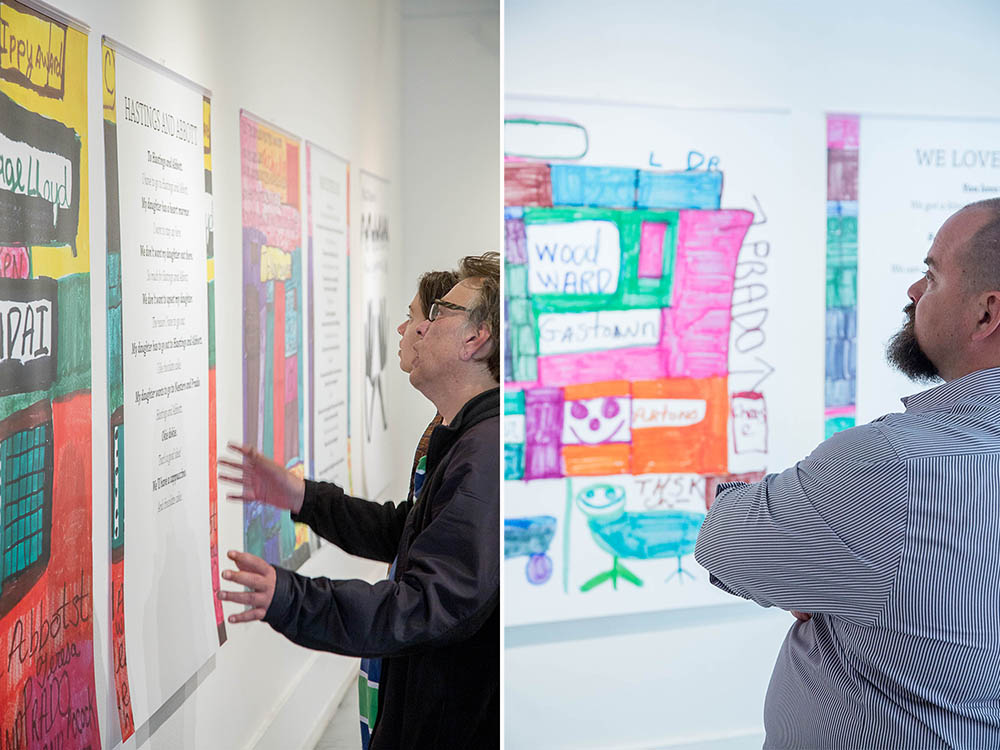Teresa Pocock says ‘Gracias!’ for her once-in-a-lifetime art trip to Mérida, Mexico
April 2, 2020 by Franke James, Teresa’s sister
Teresa Pocock got some fabulous news today, April 2, 2020… Canada Council approved her Arts Abroad Travel Grant for her past trip to Mexico. In November 2019 Teresa flew to Mérida to see her art exhibited in the Deep Down Arts show. Whoah! She’s lucky to have gone because she sure won’t be returning any time soon! (Teresa is following Vancouver’s Stay Home / Stay Put guidelines with me and my husband.) The COVID-19 pandemic sweeping the globe makes us appreciate how very fortunate Teresa was to have seized the unique opportunity to travel to the opening ceremony.
The Deep Down Arts Exhibition was organized by the Macay Foundation. Teresa says, “Gracias!” to the Canada Council and Spectrum Society‘s McGill Ability Fund, for the grants to travel to the opening event in Mérida, Mexico on November 8, 2019.

Teresa was thrilled with the celebrity welcome at the Mérida airport on Nov 7, 2019!
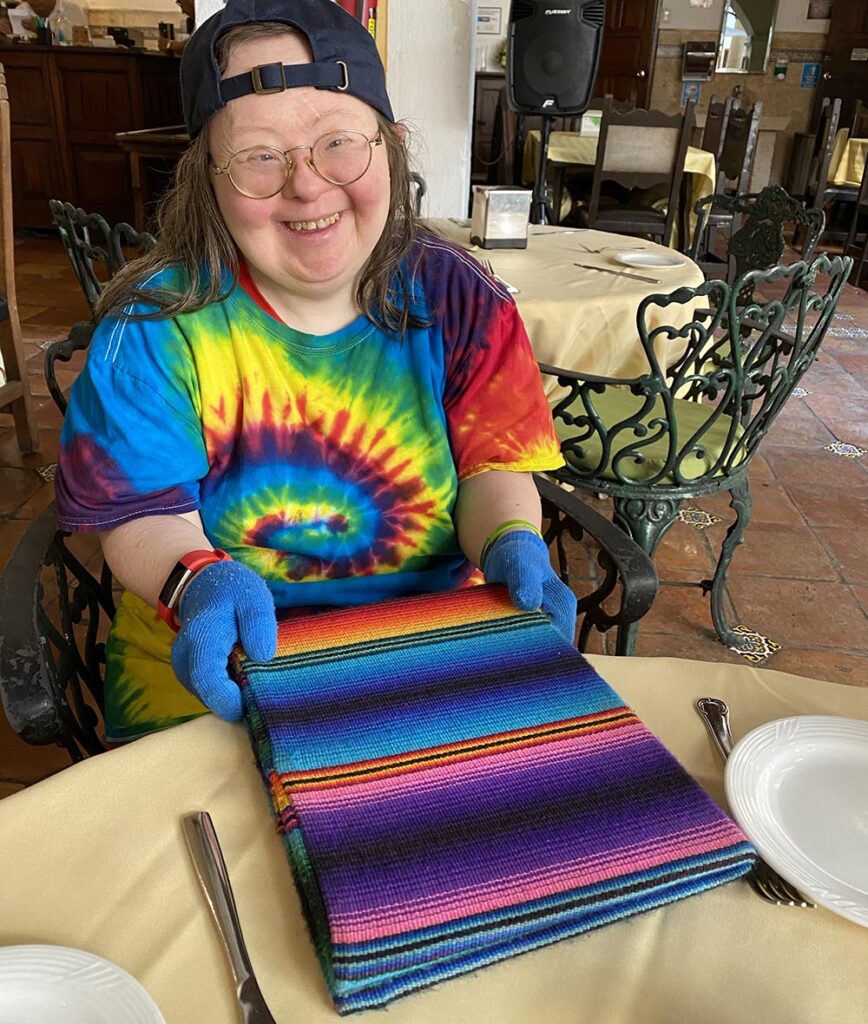
Teresa said, “I match!” Indeed her colorful style fit in so well in Mexico!
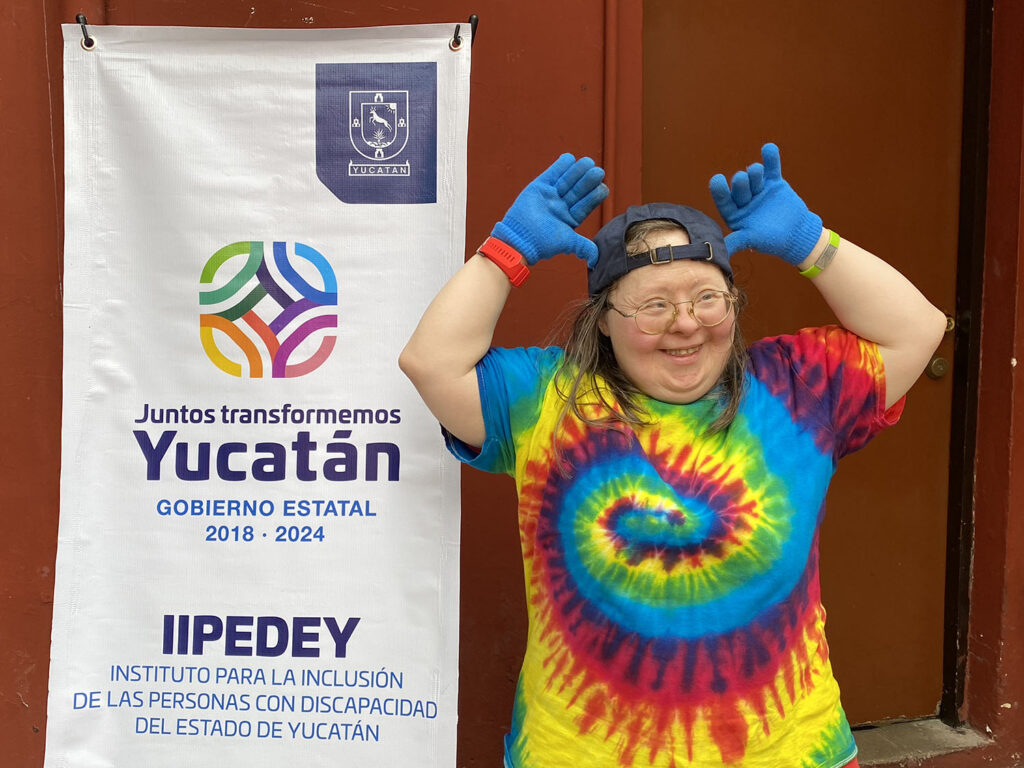
Happening at the same time as the Deep Down Arts show there was also a global gathering of educators to discuss improving inclusion in society.
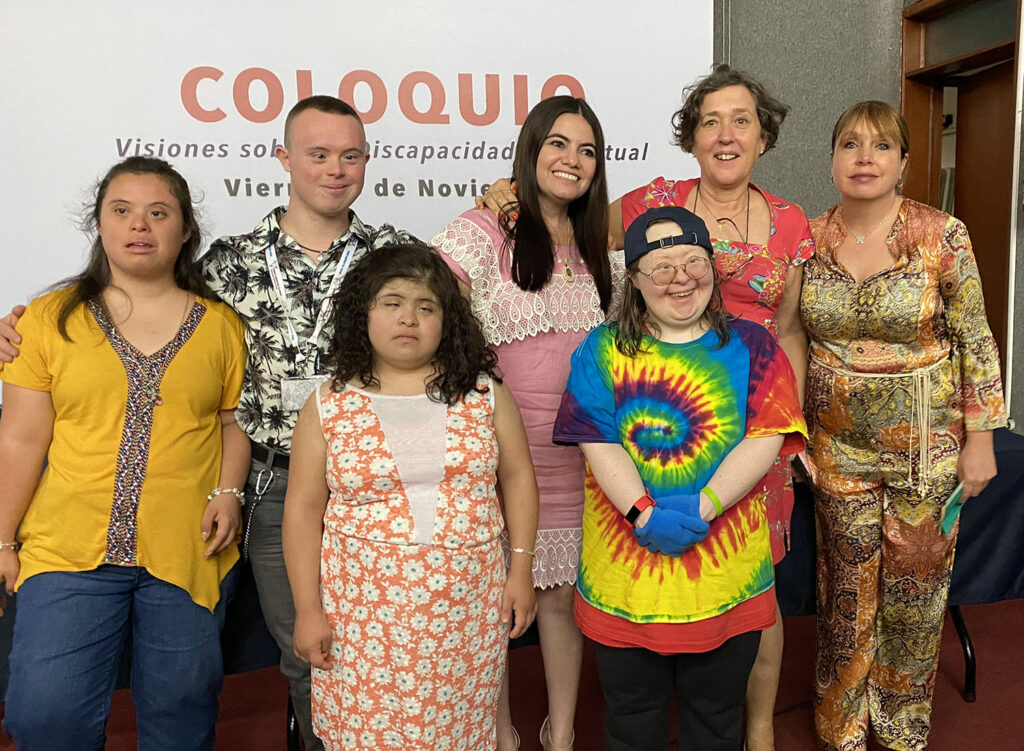
Teresa posed for pictures with delegates and speakers from the Advisory Council of the Institute for the Inclusion of Persons with Disabilities of the State of Yucatán (IIPEDEY).
Teresa spontaneously went on-stage and introduced herself as an artist and author from Canada. “It is a beautiful design. I am a professional artist and I am on Amazon!”
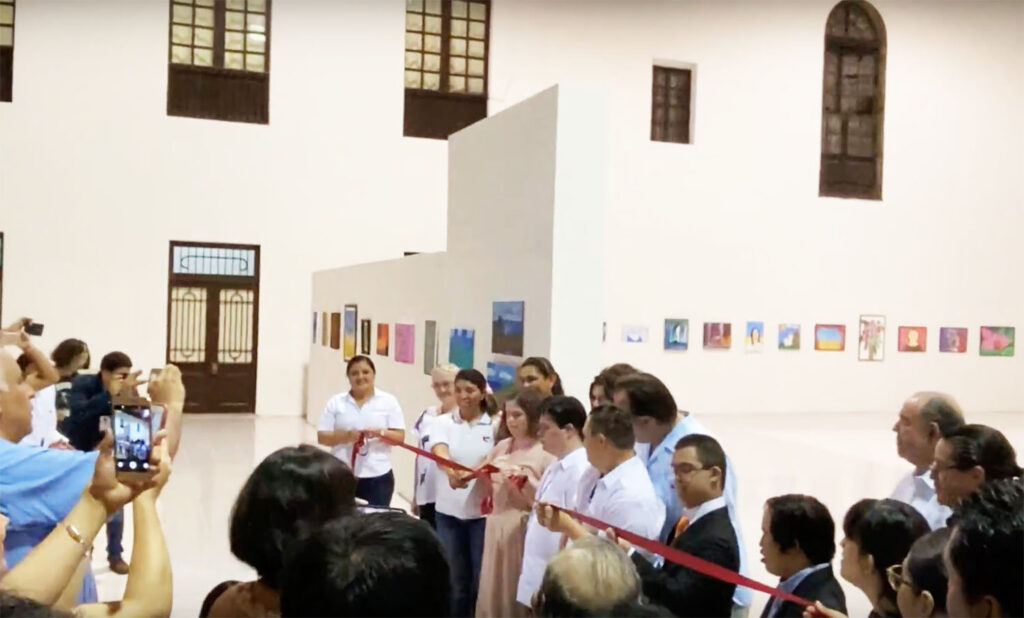
The red ribbon-cutting ceremony at the opening of Deep Down Arts at the museum on November 8, 2019.
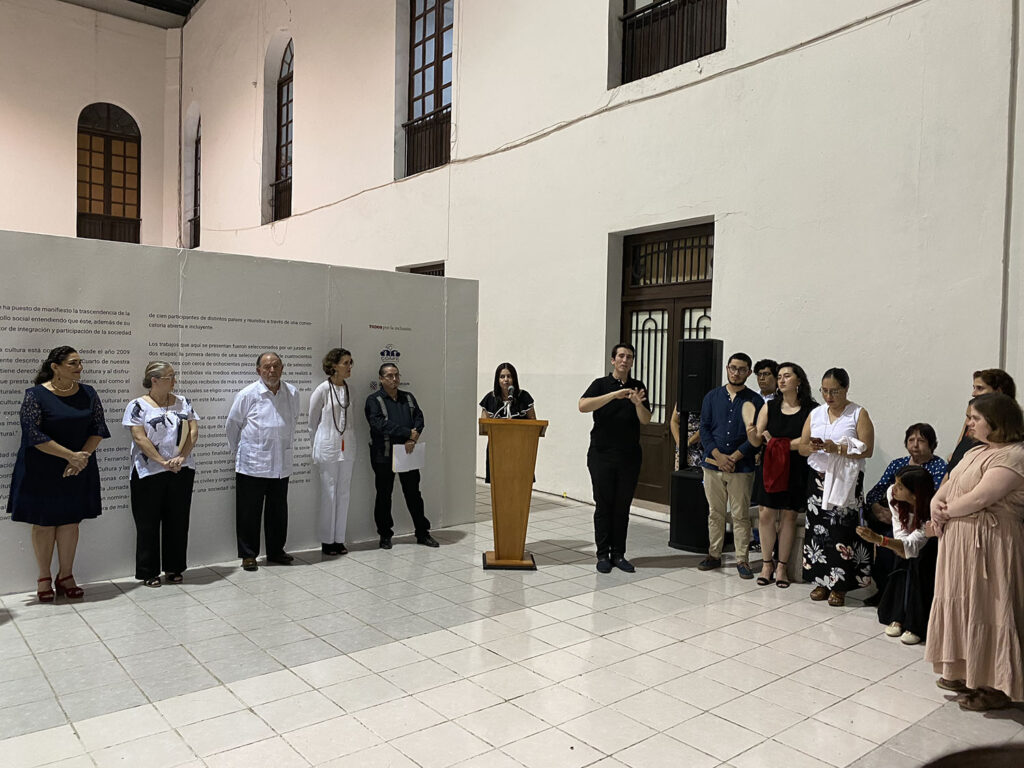
The dignitaries spoke about the global art exhibition and the importance of inclusion in Mexico.
Teresa gave the Director of the exhibition, Dr. Manuel Guerrero, a signed copy of her Totally Amazing book. Dr. Guerrero exclaimed, “You are totally amazing!”
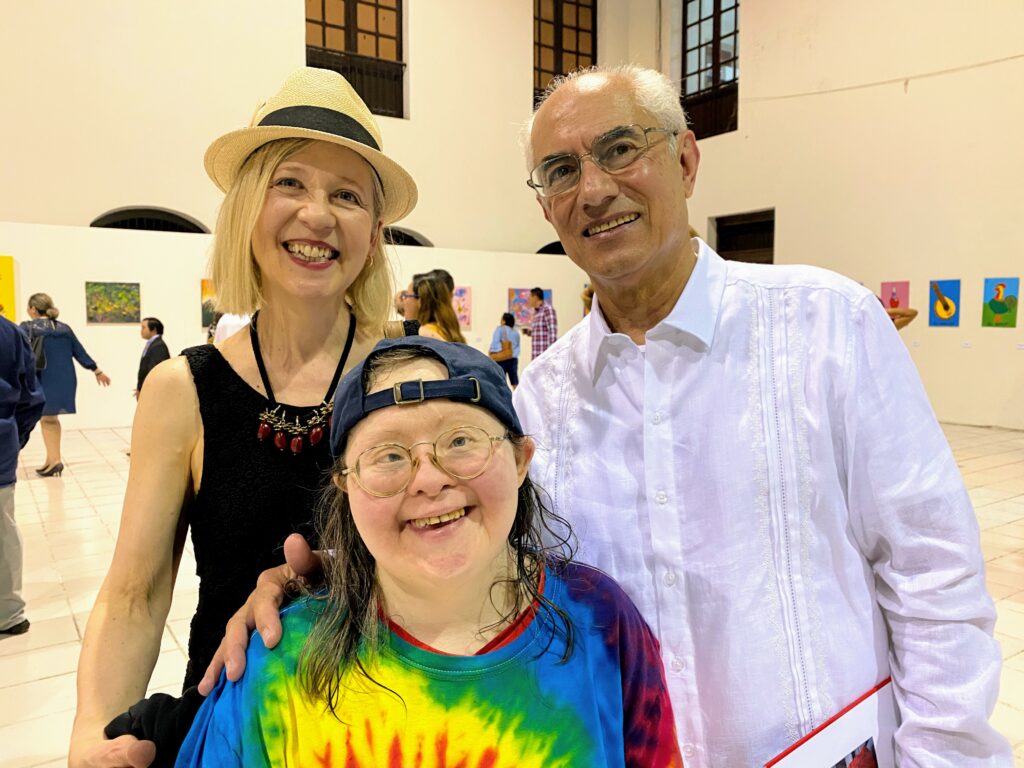
The artist Teresa Pocock with me and Dr. Manuel Guerrero at the Deep Down Arts Exhibition. [Photo by Billiam James]
Teresa was delighted to meet with schoolchildren who were touring the Deep Down Arts show
An art teacher from Mérida said, “We need to teach the kids to have another type of mentality. Right here in Mexico, we don’t have this kind of art. We don’t have the diversity. We just get accustomed to the “normal” kind of art.”
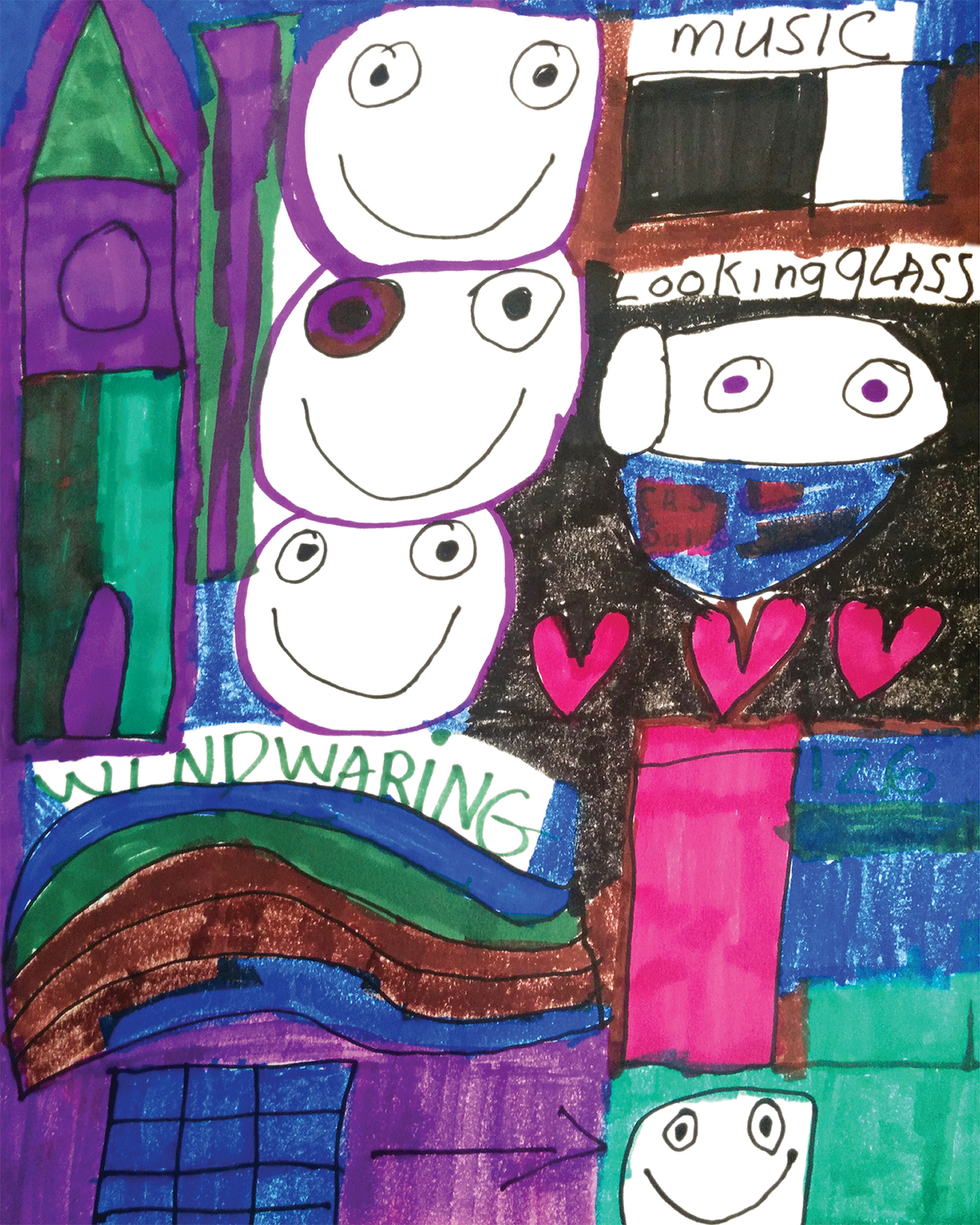
Art and poem by Teresa Pocock
WIND WARNING
I’m afraid to go outside.
There’s a wind warning.
I’m afraid to get soaking wet.
I know what you mean.
I’m too chicken and the chickens are very tired.
The wind warning is in the background falling.
Don’t frighten me.
Blowing winds and showers.
Oh I see.
Now you’re afraid.
I’m afraid of…
It’s okay, don’t be scared of the showers.
You can take an umbrella.
Now that’s a brilliant idea. My coat is red.
My umbrella is red.
It’s okay to go outside. Don’t worry.
I do like to sit outside.
We see a big rainbow after the shower.
And the fireworks are beautiful. That’s it.
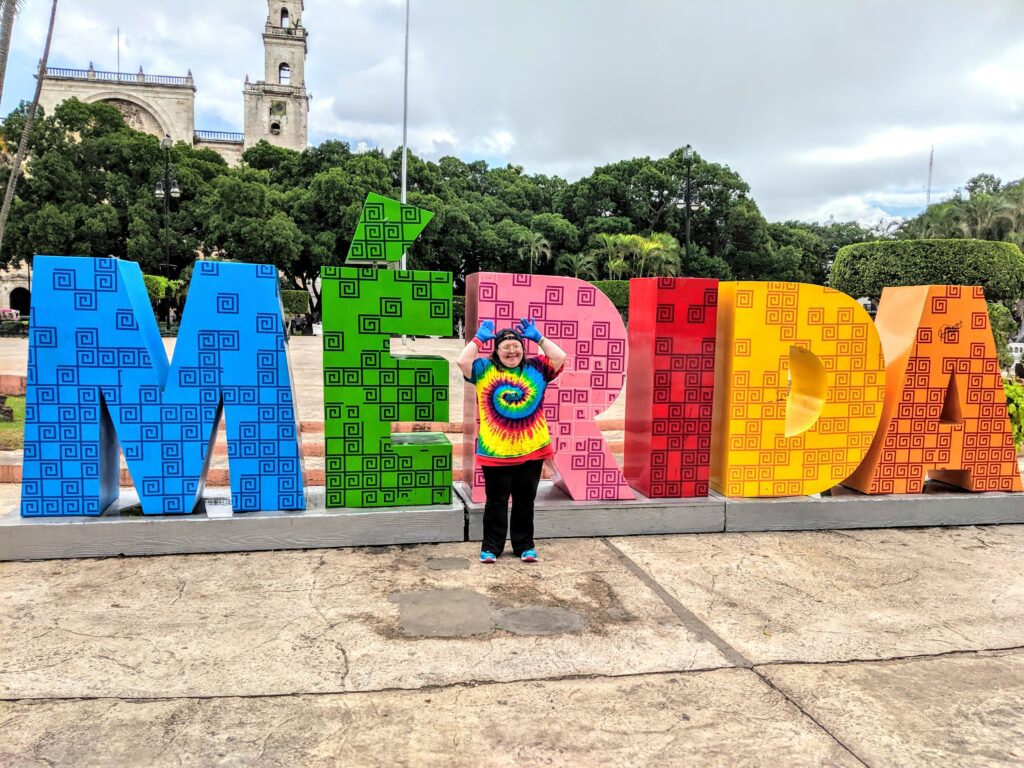
Teresa poses for a snapshot in front of the colorful Mérida signage
Teresa walked fearlessly amidst the throngs of pigeons. (You’ll hear me as the camera-person reacting to the birds too!)
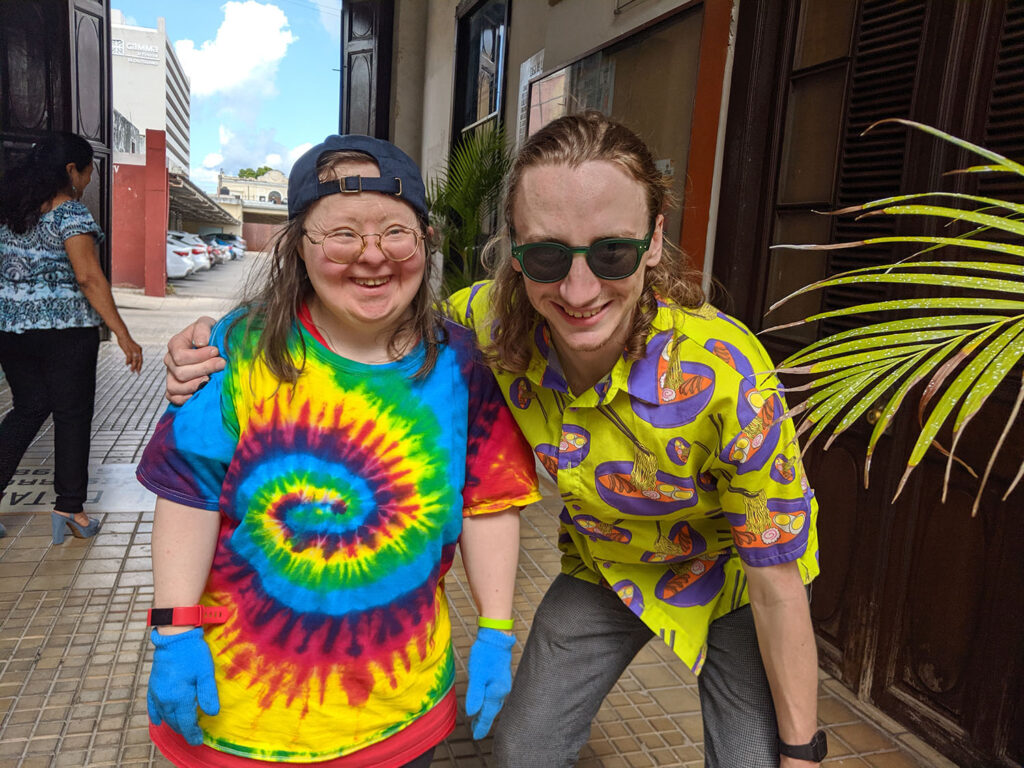
Teresa made friends with inclusion advocates from around the world
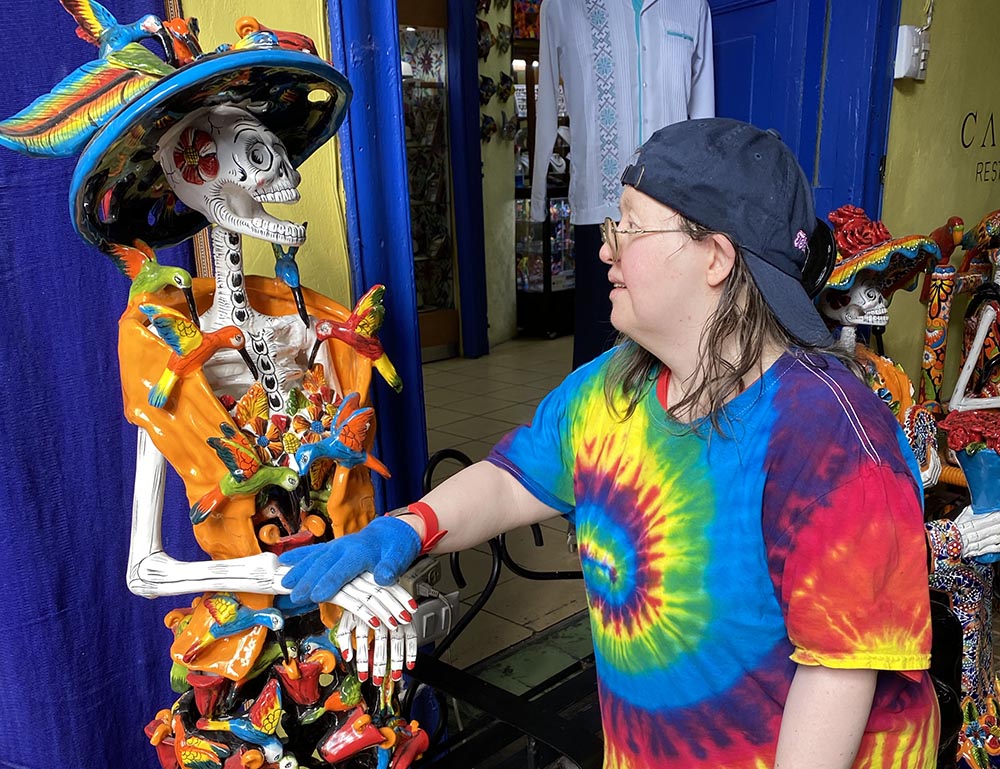
It was a lot of fun! And truly a once-in-a-lifetime experience that we will all treasure!
Thanks to the Canada Council for the Arts and Spectrum Society for Community Living‘s McGill Ability Fund for supporting Teresa’s Trip to Mérida, Mexico. Gracias!!




